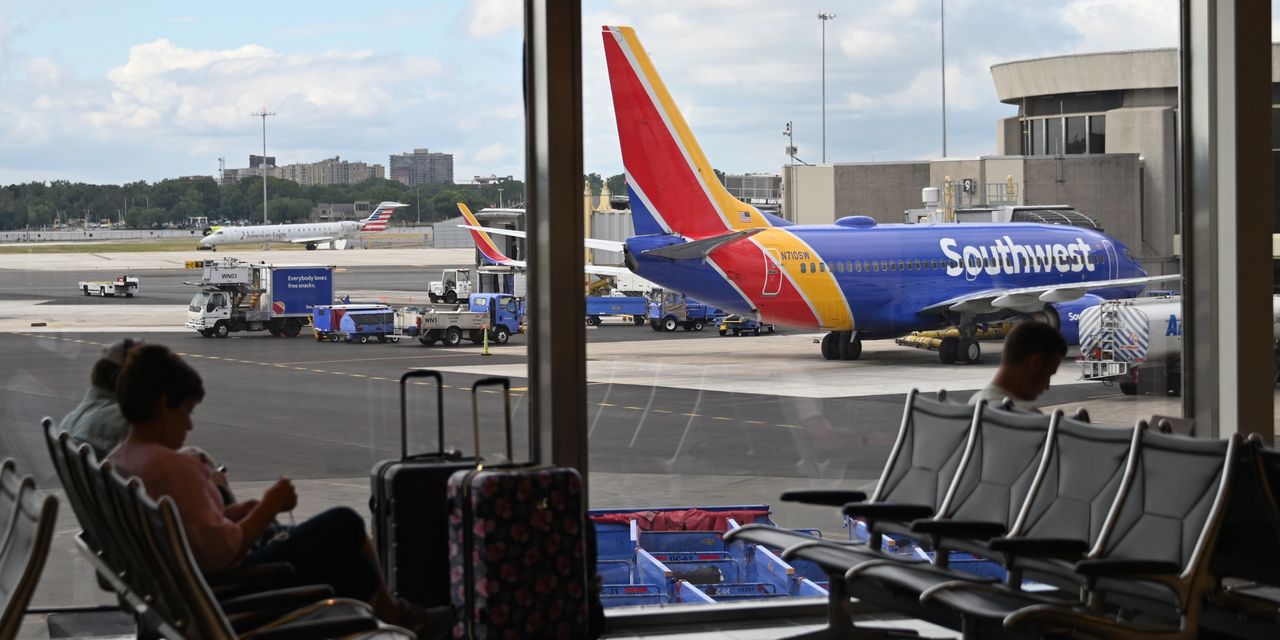Southwest Airlines
stock fell early Thursday as the airline reported a wider-than-expected loss in the first quarter and flagged higher costs due to delivery delays at
Boeing.
The carrier (ticker: LUV) said it expects “solid profits” in the second quarter as it flagged strong leisure demand heading into the summer vacation season. It didn’t provide specific forecasts of its results.
Other areas of its outlook are likely to raise concerns among investors.
Aircraft delivery delays at
Boeing
(BA) are set to increase Southwest’s costs and restrict its ability to meet demand later in the year. The carrier will now receive 70 737-8 jets, rather than 90, it said, leading to a reduction in flights in the second half of the year and a one percentage-point decrease in planned capacity.
As a result, costs per available seat mile are now expected to decrease between 2% and 4% for the full year, down from a previous outlook for costs to decline 3.5% to 5.5%.
On top of that,the company said revenue per available seat mile—a closely followed industry metric—is expected to fall between 8% and 11% in the second quarter. Southwest said that was partly because the comparable period in 2022 included additional revenue from the expiry of unused pandemic-era flight credits.
The stock fell around 5% early Thursday.
The shares have underperformed the broader sector this year as the airline has been hit by a number of operational issues, including widespread flight cancellations in December. The airline briefly halted flights nationwide last week due to a technical issue. However, Southwest said it ranked number two in domestic on-time performance through March.
Southwest (ticker: LUV) posted an adjusted loss of 27 cents per share on record first-quarter revenue of $5.71 billion. The consensus call among analysts surveyed by FactSet was for a loss of 23 cents per share from revenue of $5.72 billion.
The airline said the disruption at the end of the year cost it $325 million in revenue in the first quarter because fewer consumers opted to book with Southwest in January and February.
Southwest Airlines
told investors to expect a first-quarter loss back in January after posting a wider-than-expected loss in the fourth quarter as a result of the flight cancellations at year-end. But strong demand and revenue trends in March led to “solid profitability” for the month, as well as the record first-quarter revenue.
In the second quarter, Wall Street expects earnings of $1.05 per share on revenue of $7.03 billion.
The carrier canceled more than 16,700 flights between Dec.21 and Dec. 31 last year as bad weather displaced crews across the country, leading the airline to implement a reduced schedule for a number of days. Southwest apologized and CEO Bob Jordan said the company has taken steps to bolster its operational resilience, issuing a three-part plan last month.
But the impact of the holiday travel chaos has lingered into 2023, as Jordan noted a trend of consumer switching to other airlines. But he said the trend was “largely isolated to January and February,” at a
J.P. Morgan
conference last month.
The stock has fallen 8% so far in 2023, as of Wednesday’s close, underperforming the broader NYSE Arca Global Airline Index, which has climbed 1.4% over the same period.
Write to Callum Keown at [email protected]
Read the full article here


